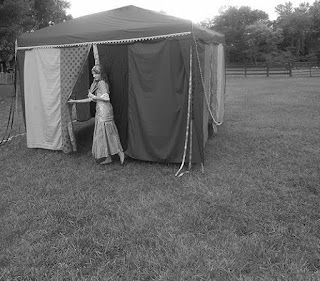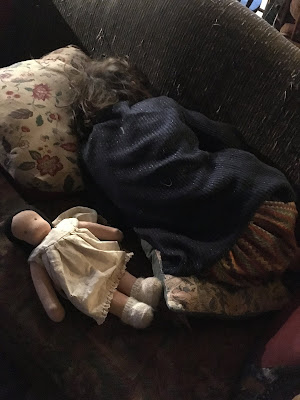Why Poverty? Some reasonable questions
What is
poverty? I pondered this as I worked with the poor in New York City in the
company of Franciscan friars for one year after college. In working with the
American poor, I discovered that poverty is not merely the lack of stuff: it’s
the lack of any safety nets. If you are poor, you are living from one moment to
the next, with nothing to rely upon in the future. There is no bank account, no
relations to call upon for help, no government programs, no friends for
comfort, if you are truly poor. Day to
day life is a struggle, and any trial or suffering can cause a collapse, since
there are no resources to draw on.
In
America, as Mother Teresa observed, our poor are not those who lack material
needs, but those who are lonely. This was definitely true of the poor in the
American cities, whose problem was not that they lacked food but that they
lacked family and friends. The plight of the single mothers and their neglected
children was often the absence of a husband.
The first wealth that any of us has is love: spouse, children, mother,
father, grandparents, aunts, uncles, extended family. Lack of that is a
poverty. Lack of love is a poverty.
Why should
we ask for poverty? Do we want to be
unloved by family and friends?
Poverty
means having no safety net. Poverty means being ineligible for the government
program, not qualifying for medical intervention, being overlooked by the
professional charity. It means having just the wrong sort of problems that put
you between the buckets.
Why should
we ask for poverty? Do we want to be deprived of resources and help?
Poverty
means not knowing where to turn. It means having the inexplicable illness, the
symptoms no one can understand, the addiction that does not respond to
treatment, the disease no one can cure. It means being subject to death and
loss and desolation.
Why would
we ask for something like that? Do we
want to be alone with only ourselves and our problems?
Here is
why we would:
All safety
nets are illusions. In the end, they are not what saves us. The love of a
family can’t cure cancer. The government program can’t save your soul. A loving spouse or the best new medication or
the most perfect diet can’t cure a self-destructive impulse. There is only one who saves us in the end,
and His name is the One Who Saves.
THAT is
poverty: the recognition that all our resources, both monetary and human, in
the end, can’t buy us happiness or peace of mind. Everything and everyone will fall short. Recognizing that is the first step towards
being poor in spirit and being free from everything that would hold us back
from Him.
So why
should poverty be the foundation for home economy?
v
To free us from fear of poverty and
make us aware of the real enemy.
Loss of money, home, and even the love of our children are not as terrible as
the loss of our soul. Recognize the real
enemy: ourselves. A follower of St.
Francis whose name escapes me—St. Giles, I think—startled me by his observation
that we spend so much time fearing starvation, kidnapping, terrorism,
earthquakes, robbers, and various other things—but none of these things can
harm our souls. However, we ourselves can send ourselves to Hell by hatred,
greed, and addictions, and yet we are quite comfortable with ourselves and
don’t spend much time putting ourselves on guard against ourselves. Why is
that? He advises: fear the real enemy, “the one who can cast you into Hell,”
and forget these little fears, for nothing else can separate us from the love
of God.
v
To make our hearts truly simple. If Love is our goal, even the most
complicated of family obligations and daily routines will eventually help to
simplify our hearts. And nothing, neither Legos nor American Girl Doll catalogs
nor holiday menu planning nor overgrown August gardens nor wedding guest lists
nor dust mites can separate us from the love of God.
v
To free us from enslavement to our
goods, from having
to care for them, guard them, worry about them. Modern life conspires towards
making productive people exhausted: why spend mental energy worrying about the
material excessively? Material things can work a spell upon us which we are
subject to, on account of our fallen nature. So potent is this spell that
Buddha imagined that freeing oneself from it would enable one to ascend to
Nirvana. Material things were made for our use, but too often we are used by
them. This must not be.
v
To make us daringly generous and
courageous. We are afraid to be generous,
afraid to give when it hurts. We fear those who are poor and fear how they
might abuse our charity. Fear of what tomorrow might bring keeps us from
sharing when we see a need. Poverty can
help us give freely away, even from what we legitimately need and could hold
onto. It is the courage to say, “My true treasure is the Lord,” and give away
fully, like the widow in the temple praised by Christ. She had legitimate
reasons to hold onto those two coins, but in her bravery and generosity, she
was able to give the Lord her all.
v
To help bring about a good and just
society. Our
economic system does need reform: so much waste is generated and so many people
are left behind. Often, we do not have the margin to be habitually generous,
and fear of losing our resources causes us to hold onto things we might be called
upon to surrender for some great good we don’t yet see. The wealth of ancient
Egypt might have seemed to be in the Nile or in the Egyptian people, but it was
also in their gold mines. When the gold mines ran out, their civilization
collapsed. Should American civilization also run out, what might come about in
its wake? Can we look beyond the moment of our own homes and children and
grandchildren to the future of our culture, should we face actual poverty? What
foundation can we best build upon for the future of Christ’s Church? I have no
utopian dreams, but I do see an injustice we can help to rebalance by putting
our own house in order and entrusting the rest to the Holy Spirit to work out.
To
live in freedom, in joy and with generosity: using goods, not being used by
them: this is my goal. So, I want to
begin this work on home economy by a foundation of poverty. Because it is
poetic and can be practical, and may help us make a good beginning, and a
better ending.



Comments